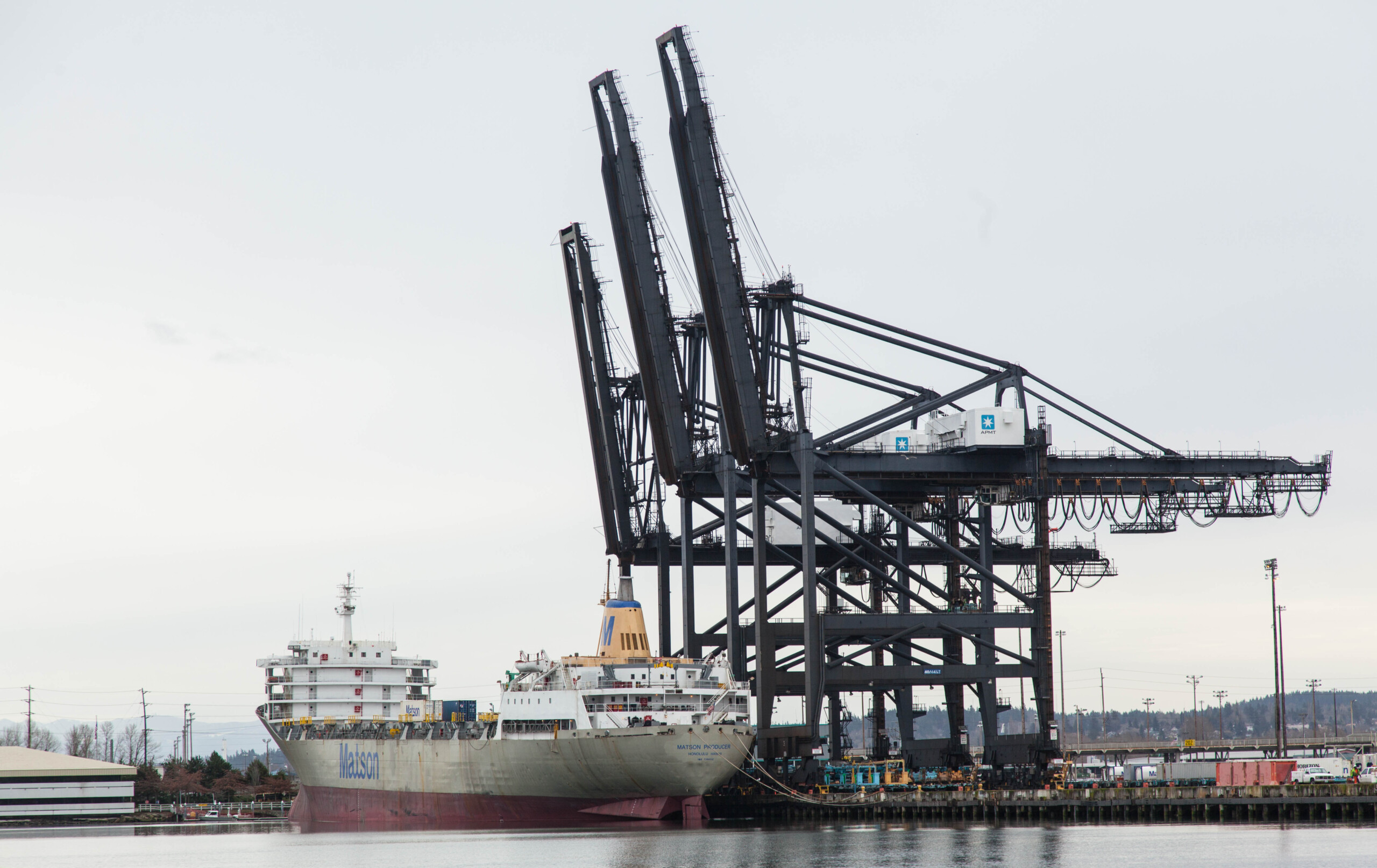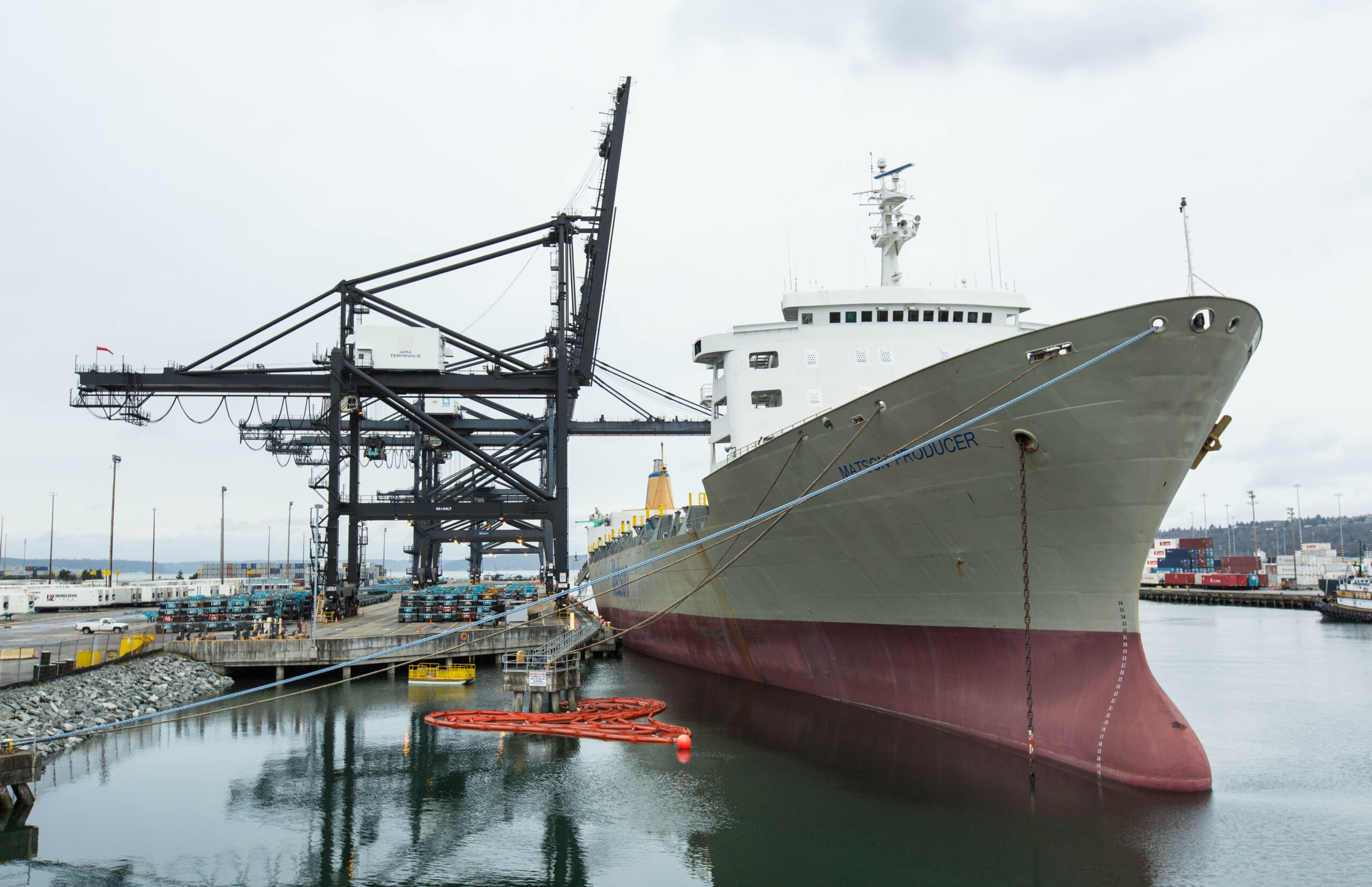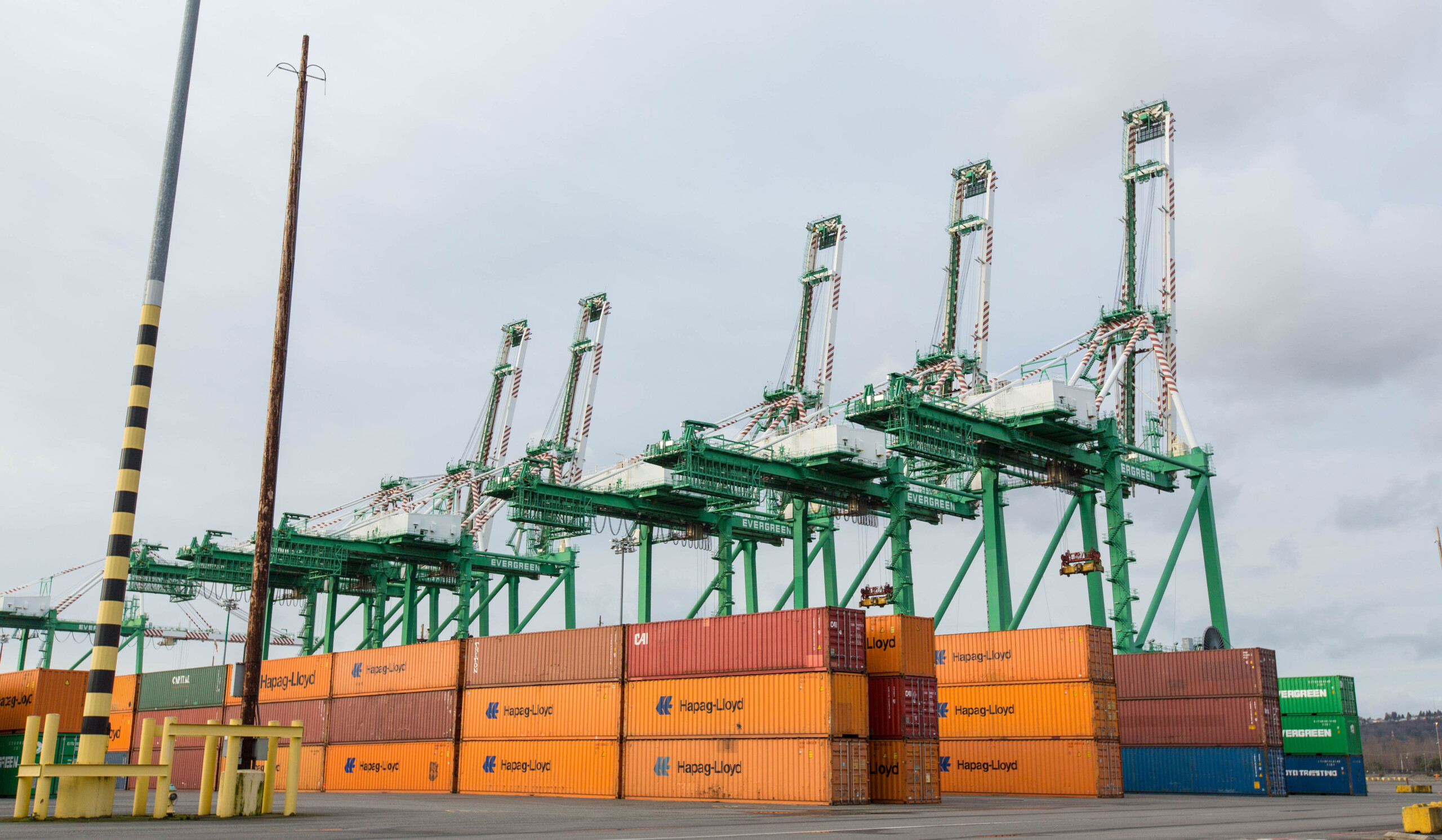Connecting for Commerce: Port of Tacoma Executive Director Eric Johnson ’83
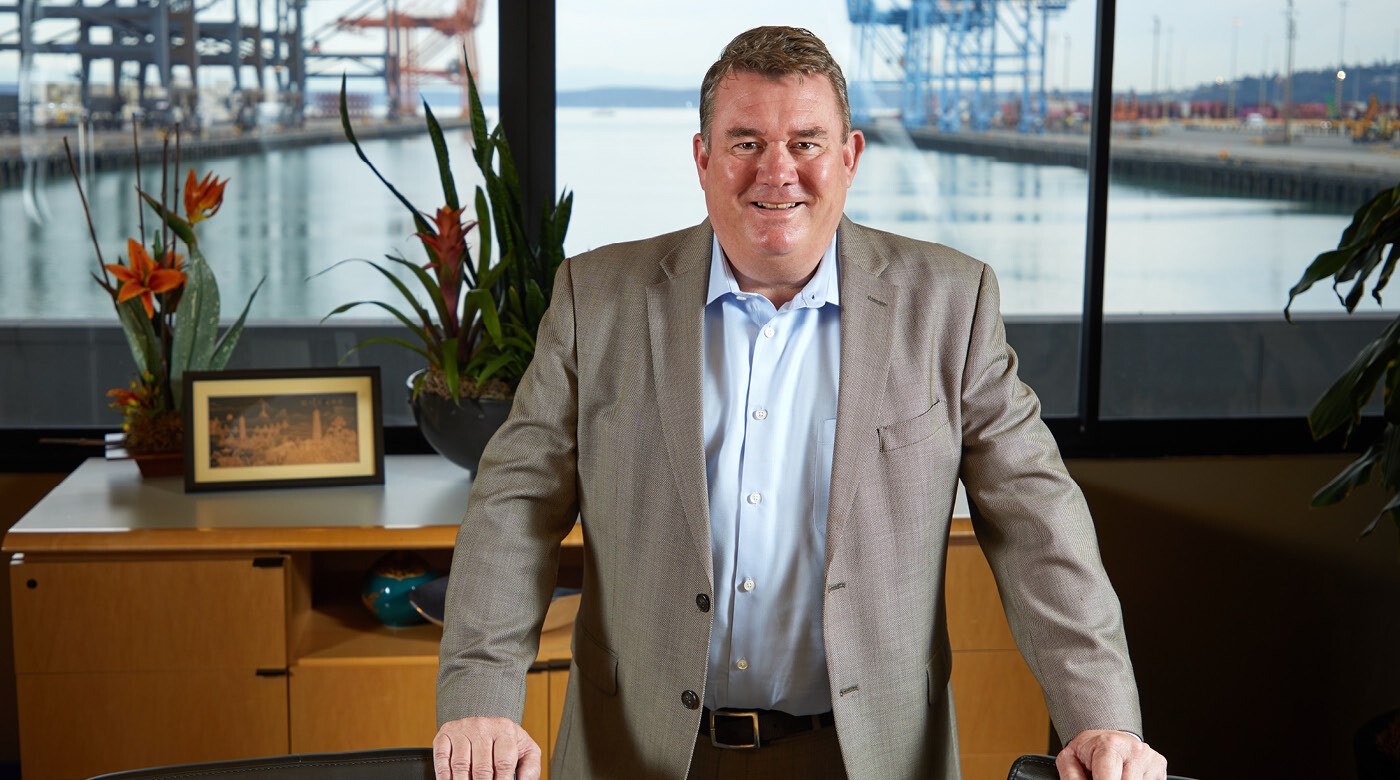
Image: Eric Johnson ’83 is the executive director of the Port of Tacoma. (Photo by John Froschauer/PLU)
By Zach Powers ’10
PLU Marketing & Communications
When Pacific Lutheran University alumnus Eric Johnson ’83 majored in political science and minored in biology, he wasn’t sure how the two would fit together in a career. After he graduated from PLU, he earned a Master of Public Administration from the University of Washington and began his career working at the state legislature. He then spent 35 years working at Washington Public Ports Association, most recently as the executive director.
Johnson now combines his interest in public policy, the environment and economics as the executive director of the Port of Tacoma – the fourth largest trade gateway in North America. In this role, he manages the industrial properties, selected marine terminals and planning and engineering for the port. This includes community engagement and strategic opportunities for future port investments. We met with him recently to discuss his work at that port, his advice to current PLU students and more.
How would you summarize the work that you do at the Port of Tacoma?
I am a connector of people and ideas. My job is to implement the vision of the elected Port of Tacoma commissioners, but I also have to be bringing up all of the issues and challenges from the staff level up to them, and also working out in the community. I connect a lot of different levels of government to each other.
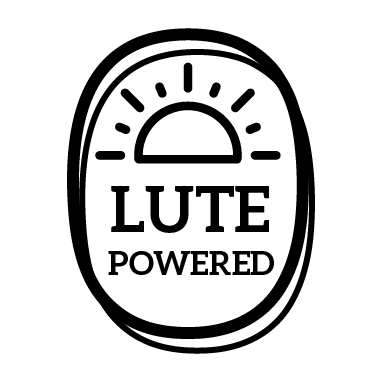
That sounds like it must take a lot of communication chops.
Yes, that’s a big part of it. Often it feels a lot like translating. I work with staff, agency partners and elected officials with high-level skills and expertise in finance, engineering, communications, and the environment. So I do a lot of work on my end to understand and evaluate things from those different perspectives.
What do you think helped prepare you to be able to do that effectively?
When I was earning my MPA, I purposely took classes in as many different departments as I could. I took law classes, engineering classes and economics classes. I took a couple of environmental engineering courses. So I purposely did that because I wanted to see how other disciplines were trained and taught. And it served me very well over the years because I’ve been able to translate between attorneys, engineers, and politicians.
“My best advice would be to learn one subject very, very deeply, and then learn a handful of other ones… The workplace increasingly requires a blend of skills and a blend of knowledge.”
– Eric Johnson ’83
What is something that might surprise folks about the work of the port?
I’ve often said that the seaport is the most visible and least understood part of our economy. Everybody sees us, everybody sees the ships come and go, the trains come and go, but almost nobody understands how we work. And so one of the things that is perhaps not surprising, but very true is the complexity of harbor operations. It is not as simple as just ships come in, get unloaded by people and put on trains, and so forth. It is a very, very complex ballet of interests that intersect down here. And that complexity might surprise people.
I also think a lot of people would be surprised by how much time we spend on environmental projects and the resources we put into improving the natural environment. These projects include efforts like stream and beach restorations, water quality improvements, and cleanups of contaminated property. We understand that this is an industrial agency with a hundred plus years of history here. We understand that we have a legacy of contamination that was left by private companies and we’re working to clean that up.
It seems complicated, an international seaport that’s both in this historically polluted part of the Puget Sound at the mouth of the Puyallup River.
That’s right. It’s a complicated spot at the bottom of a river basin. It’s very environmentally sensitive. Lots of things come together here. Salmon and ships and water and people. And we work hard to try to make them all work together.
What’s your advice to current PLU students who may be interested in a career at the intersection of economics, business and science?
My best advice would be to learn one subject very, very deeply, and then learn a handful of other ones. Have one really strong skill set and then learn as many complementary skills as you can. The workplace increasingly requires a blend of skills and a blend of knowledge. Getting a degree in business and understanding business is great, but you also need to understand things like communications or government affairs or environmental policy. That cross-disciplinary education is a really good skill set. PLU does a great job with that.
Lute Powered is a project highlighting PLU alumni at some of the most well-known organizations across the Puget Sound region. John Wolfe ’87 and Mark Miller ’88 were the first two Lutes featured from the Port of Tacoma and Northwest Seaport Alliance. Previous Lute Powered series highlighted PLU alumni at Amazon, MultiCare Health System, and the City of Tacoma.



